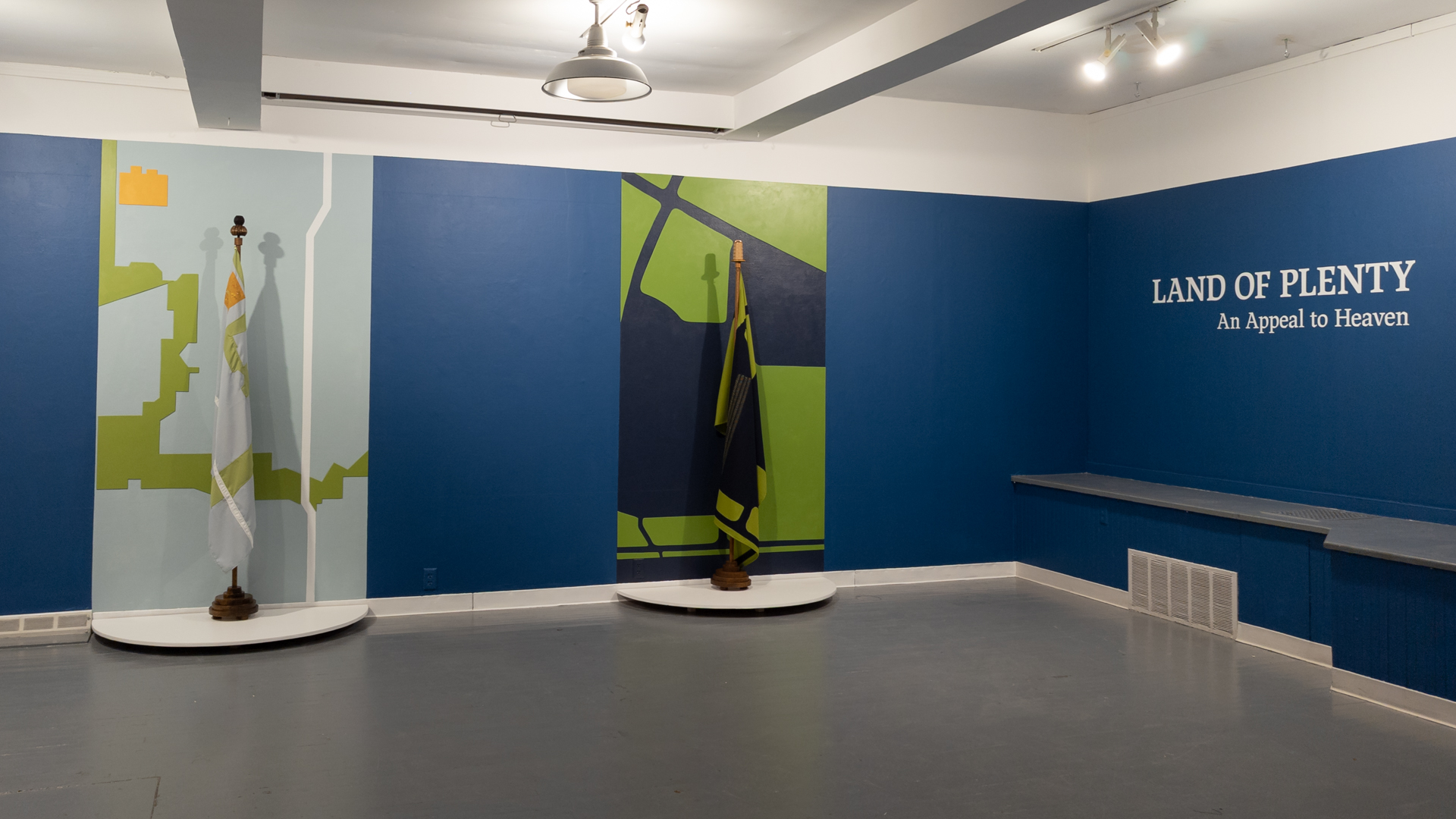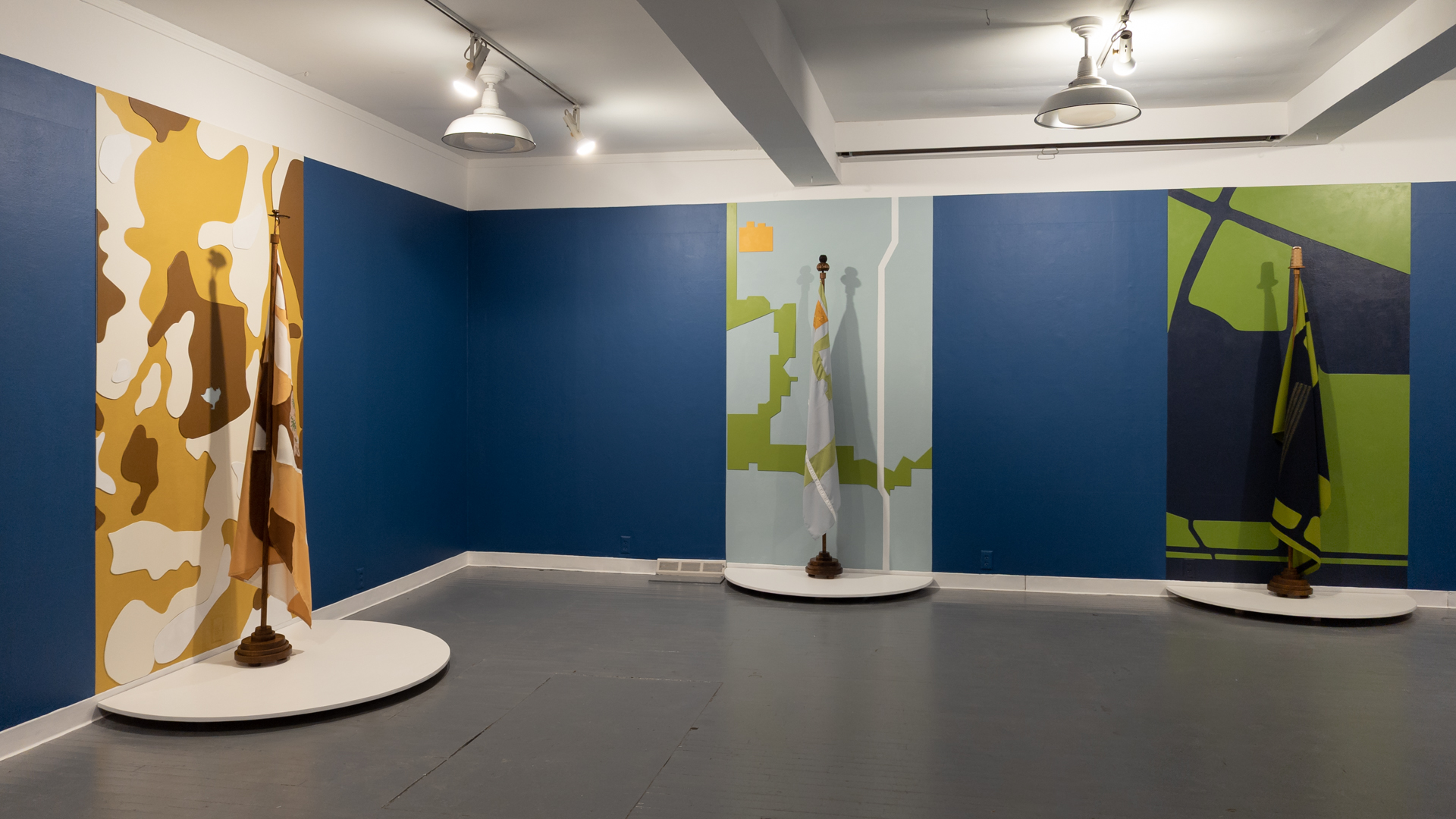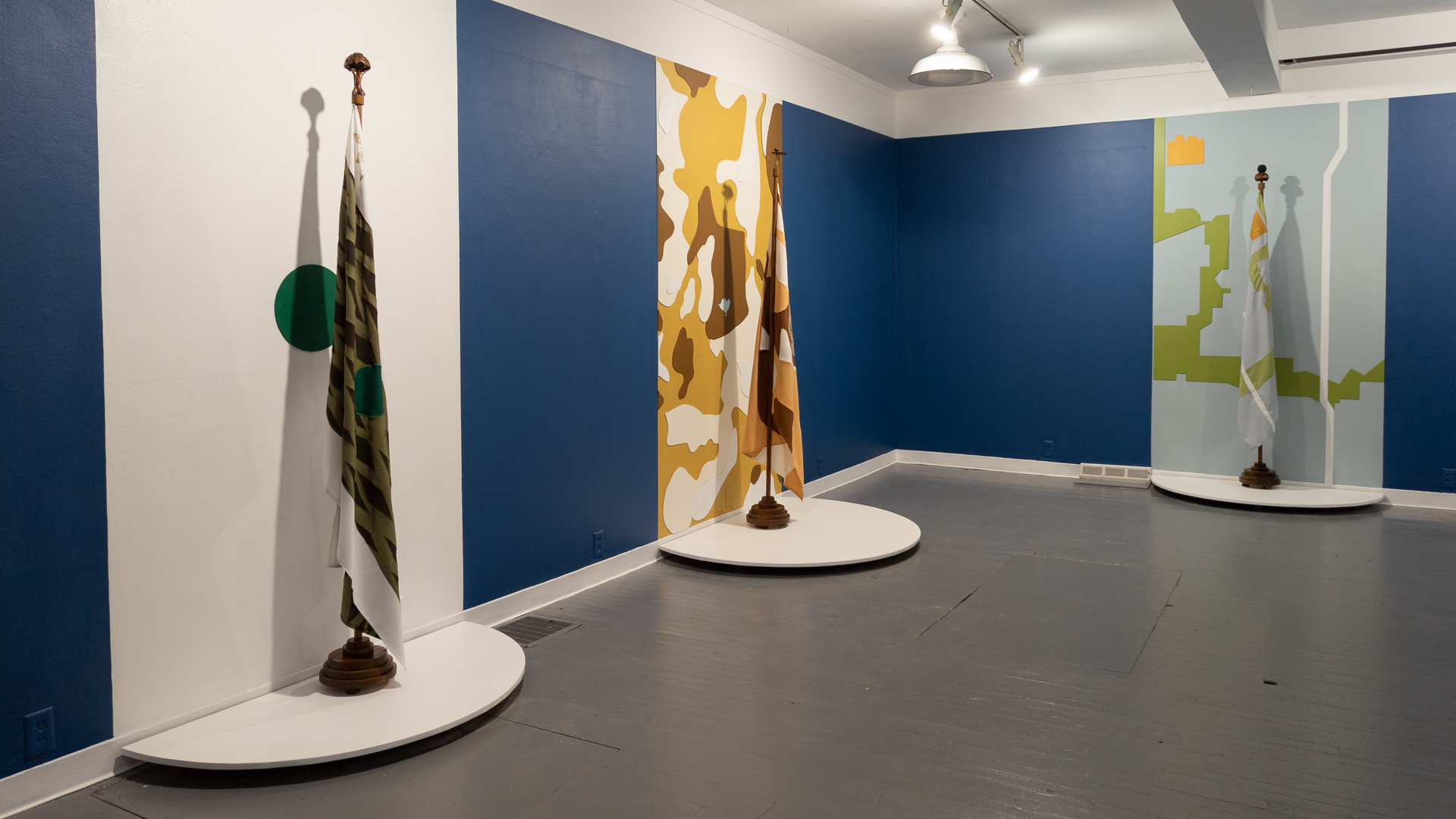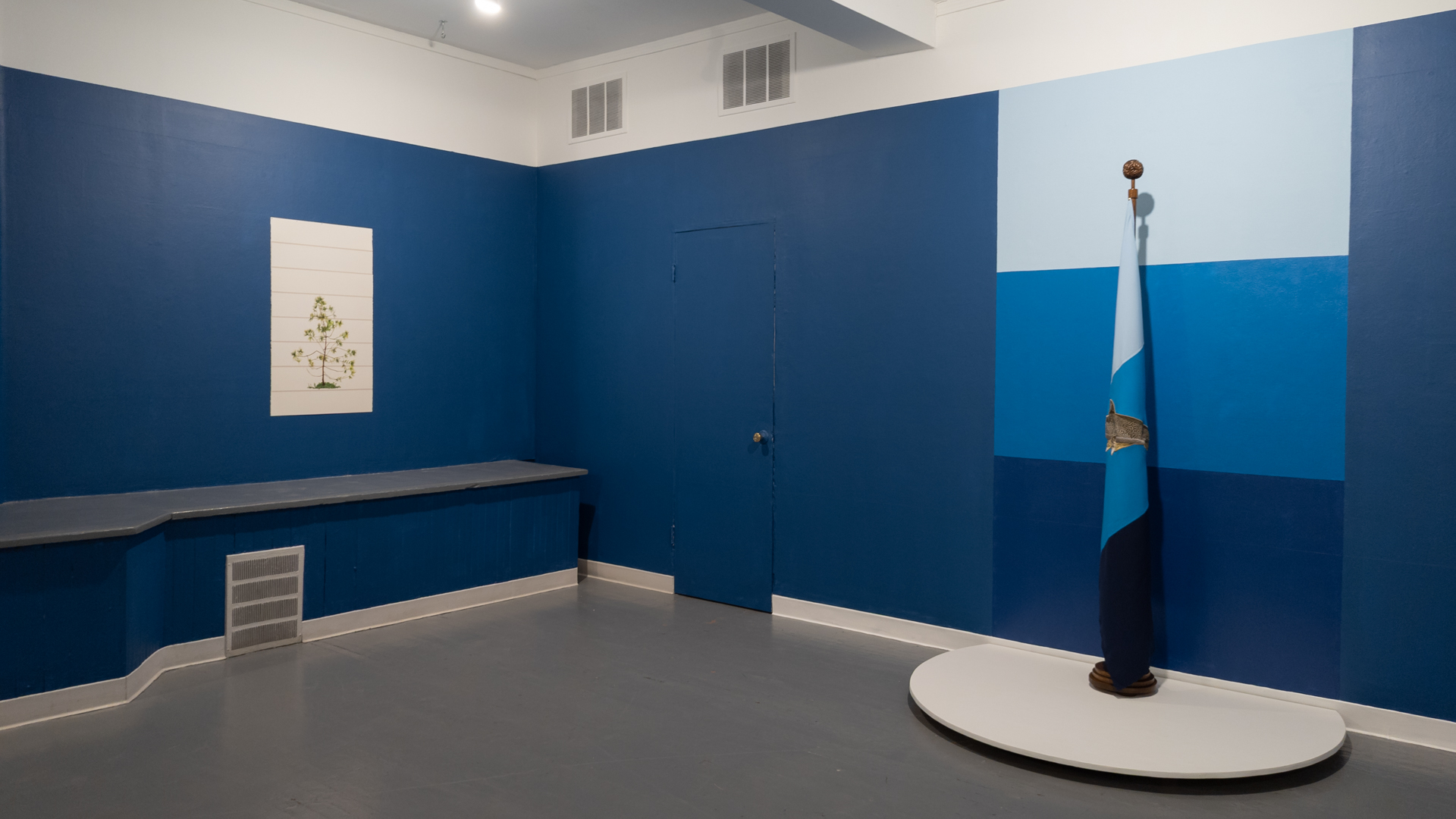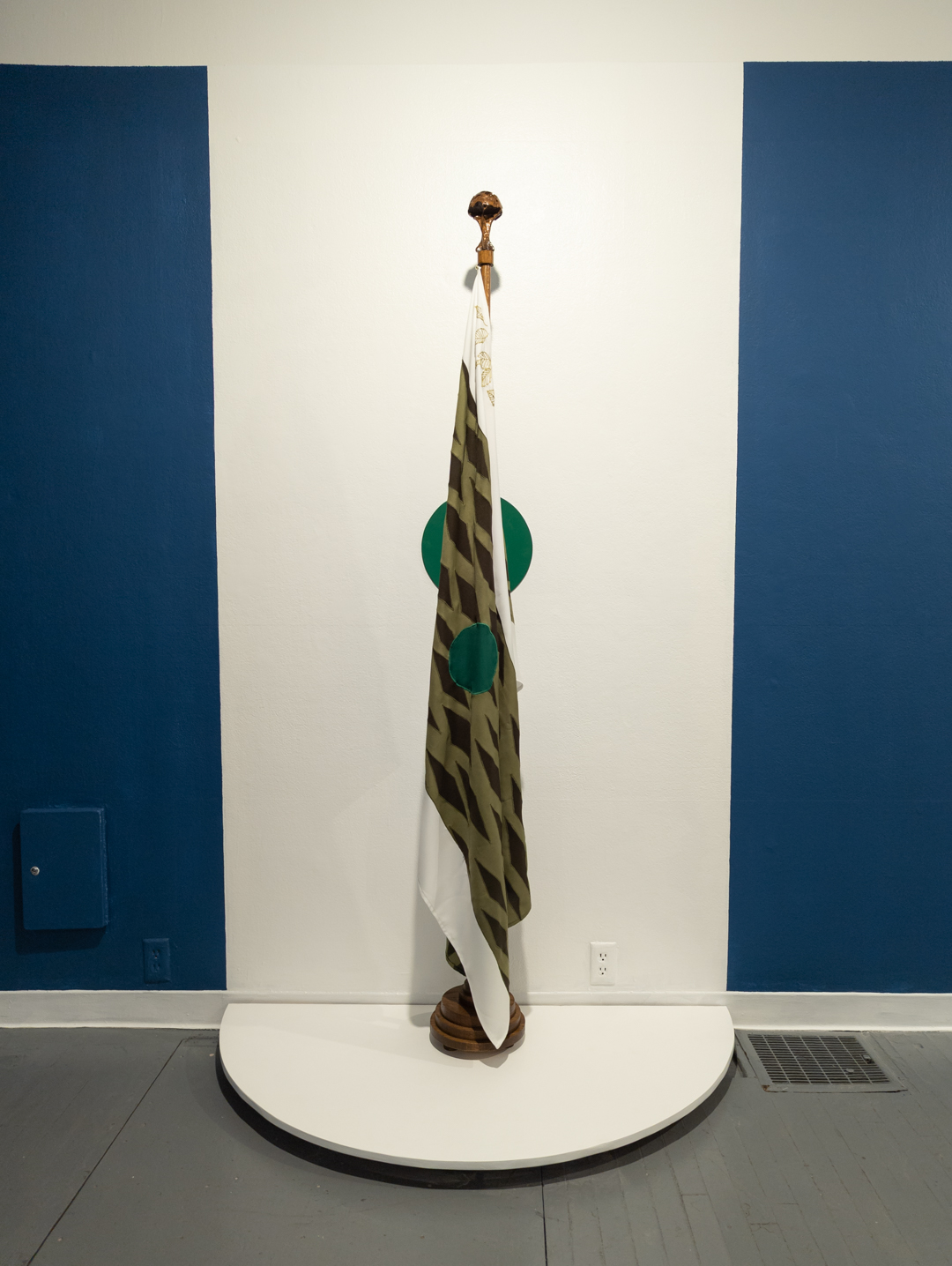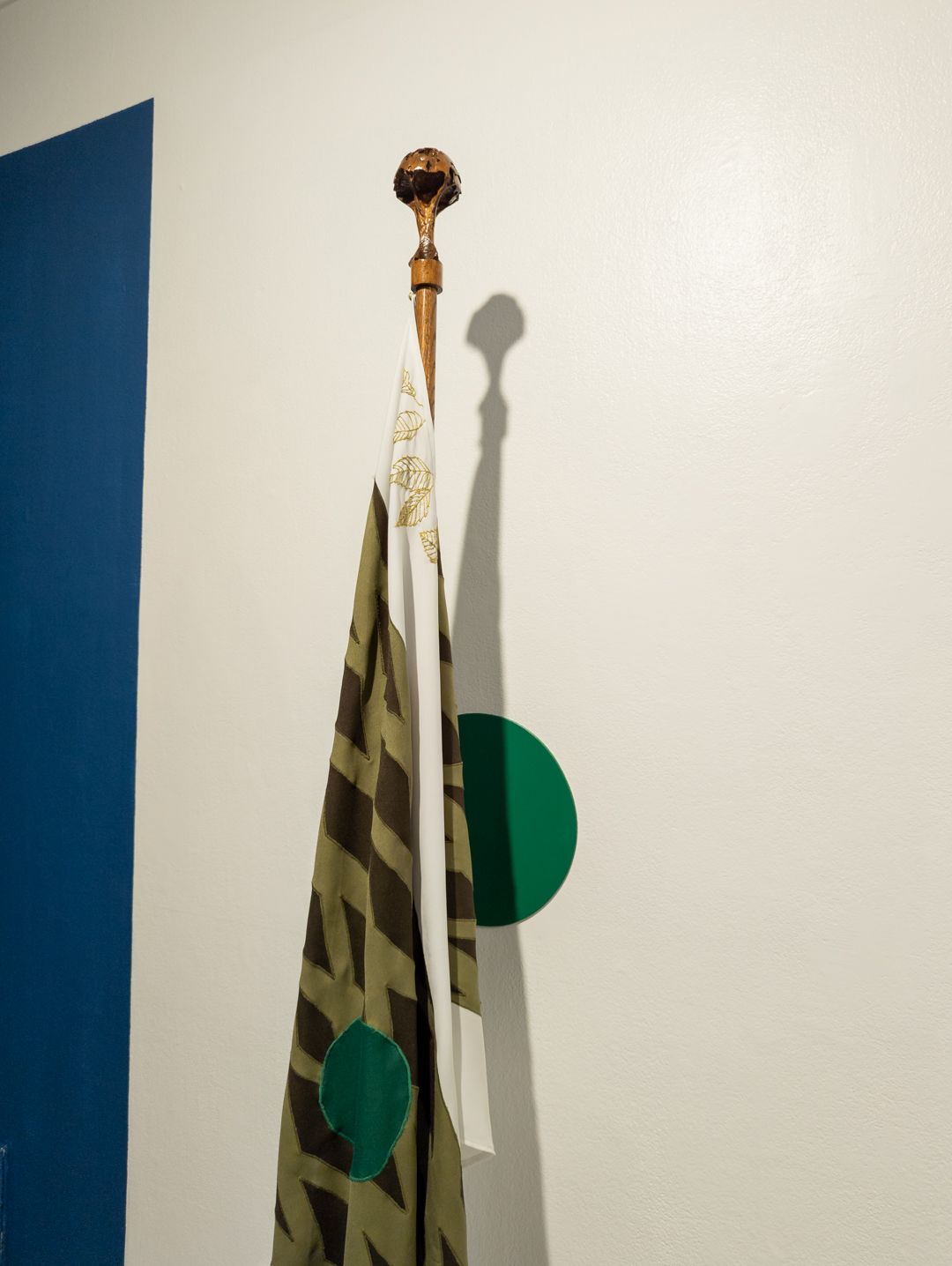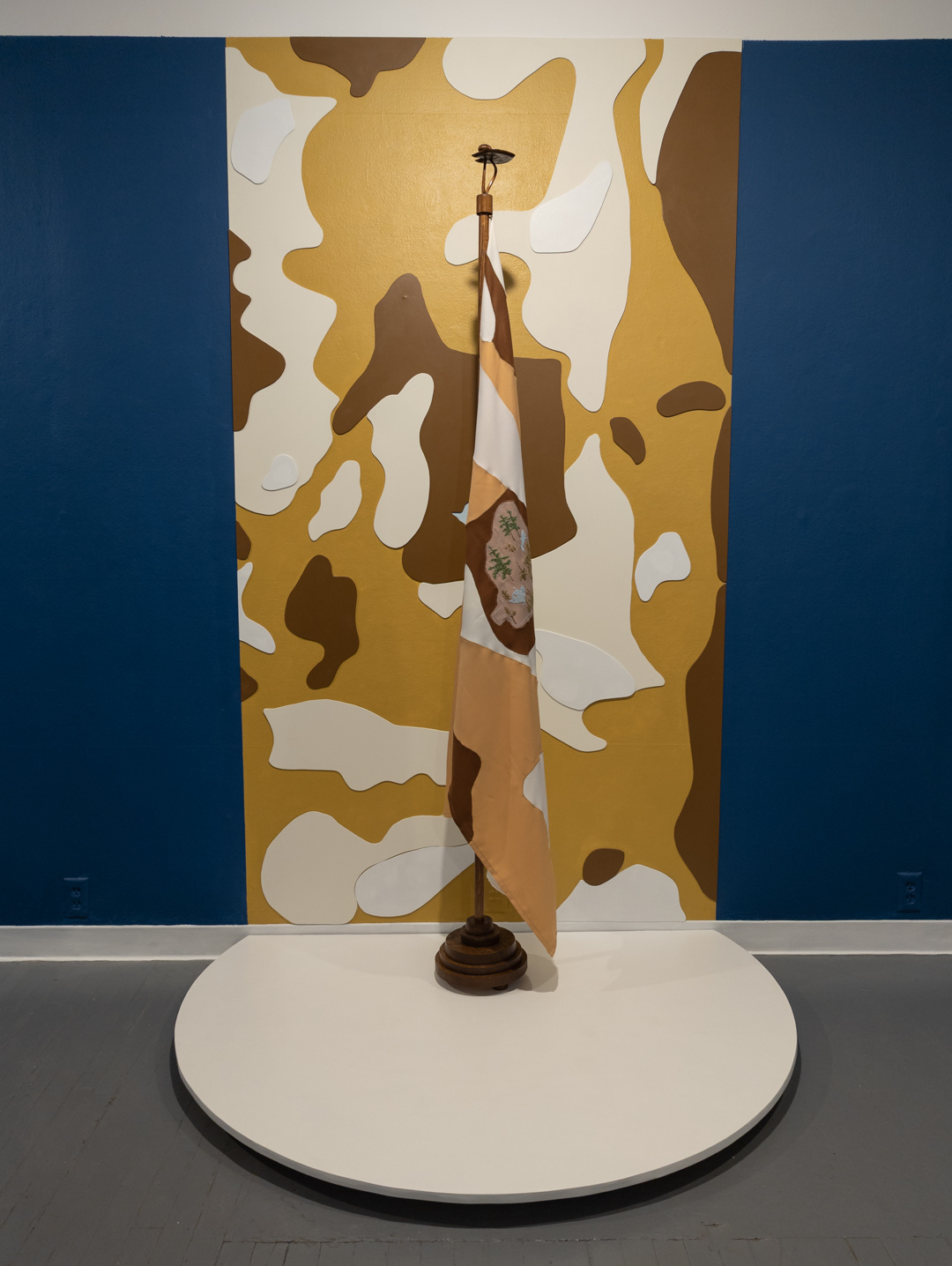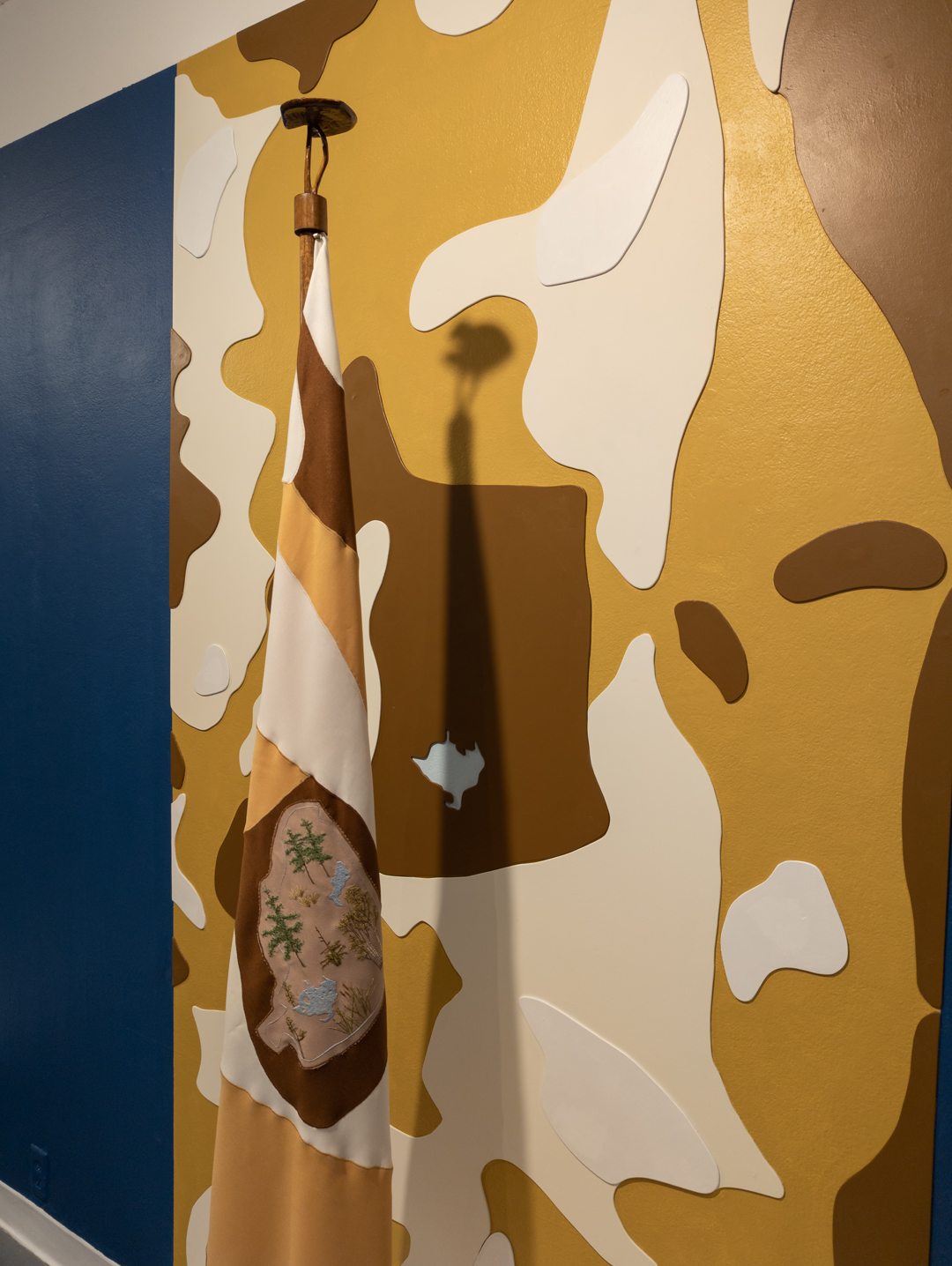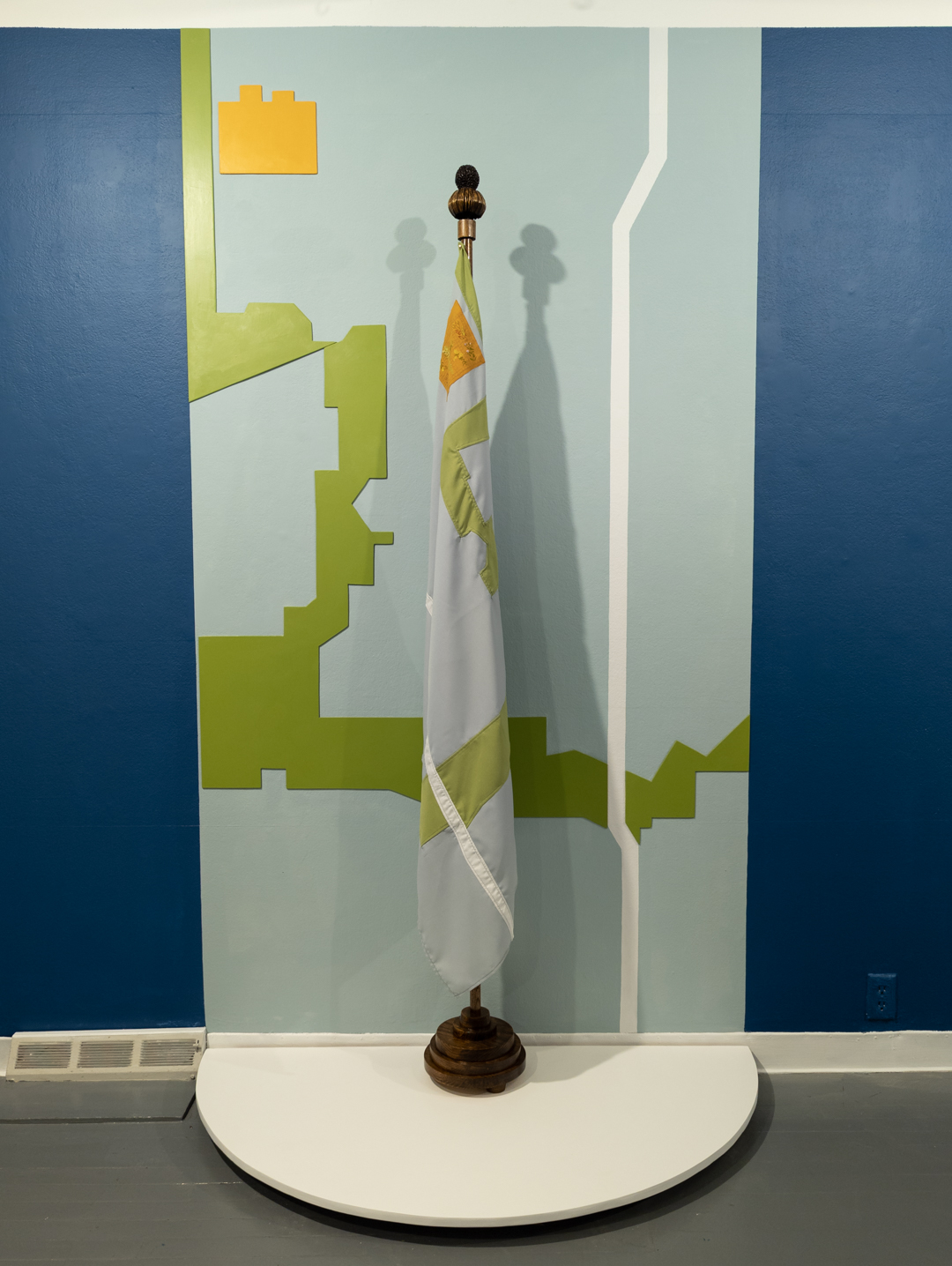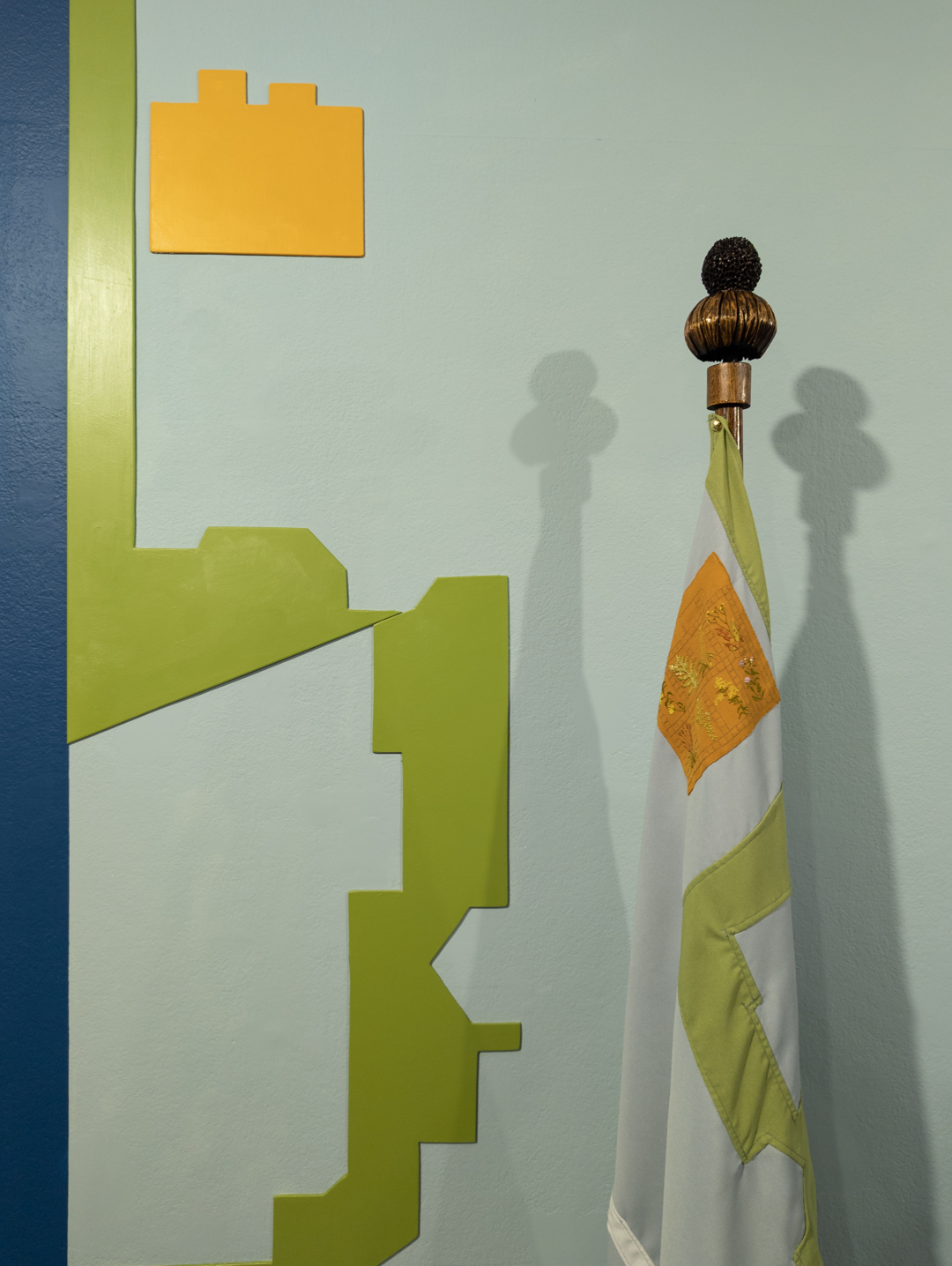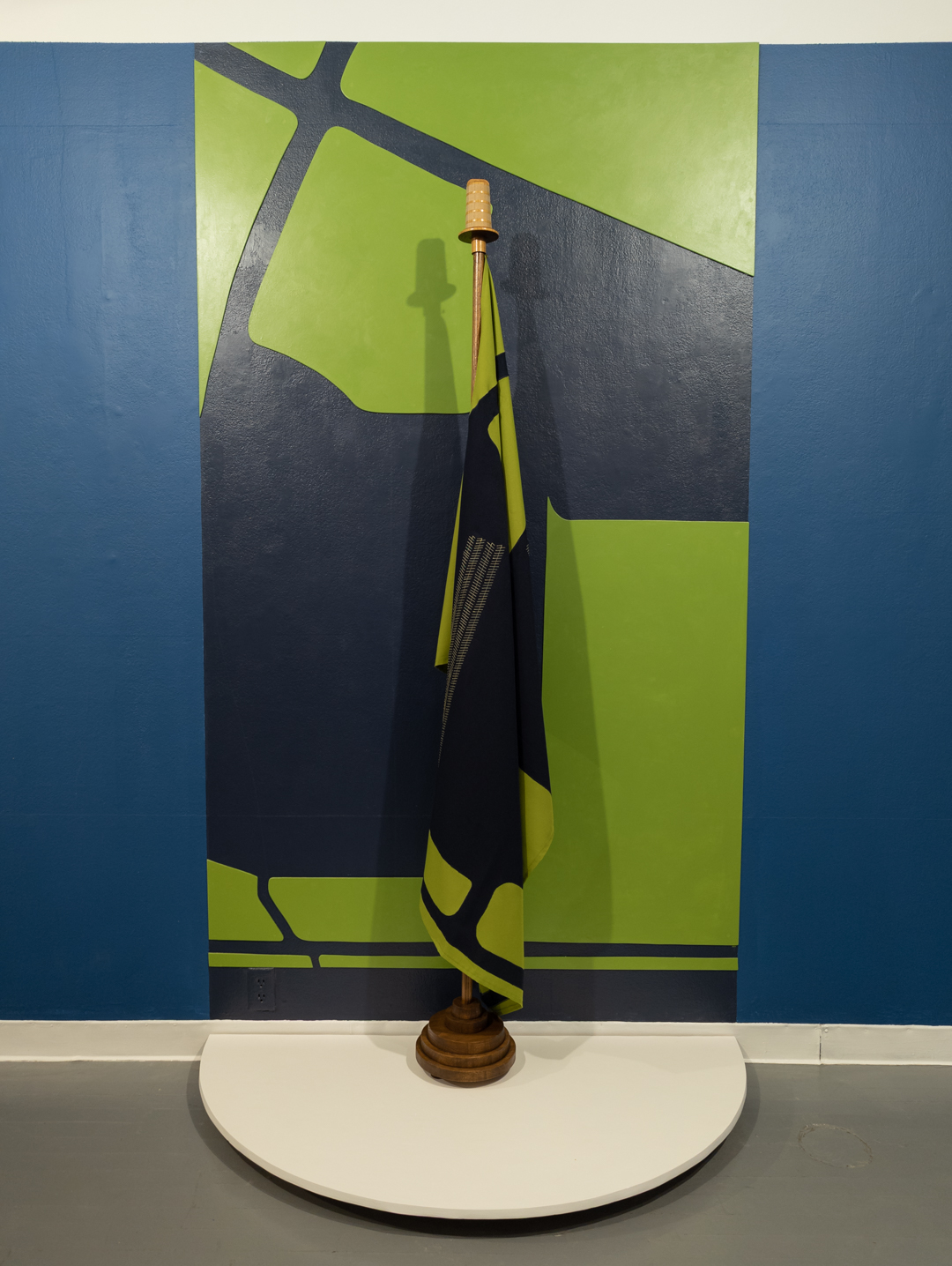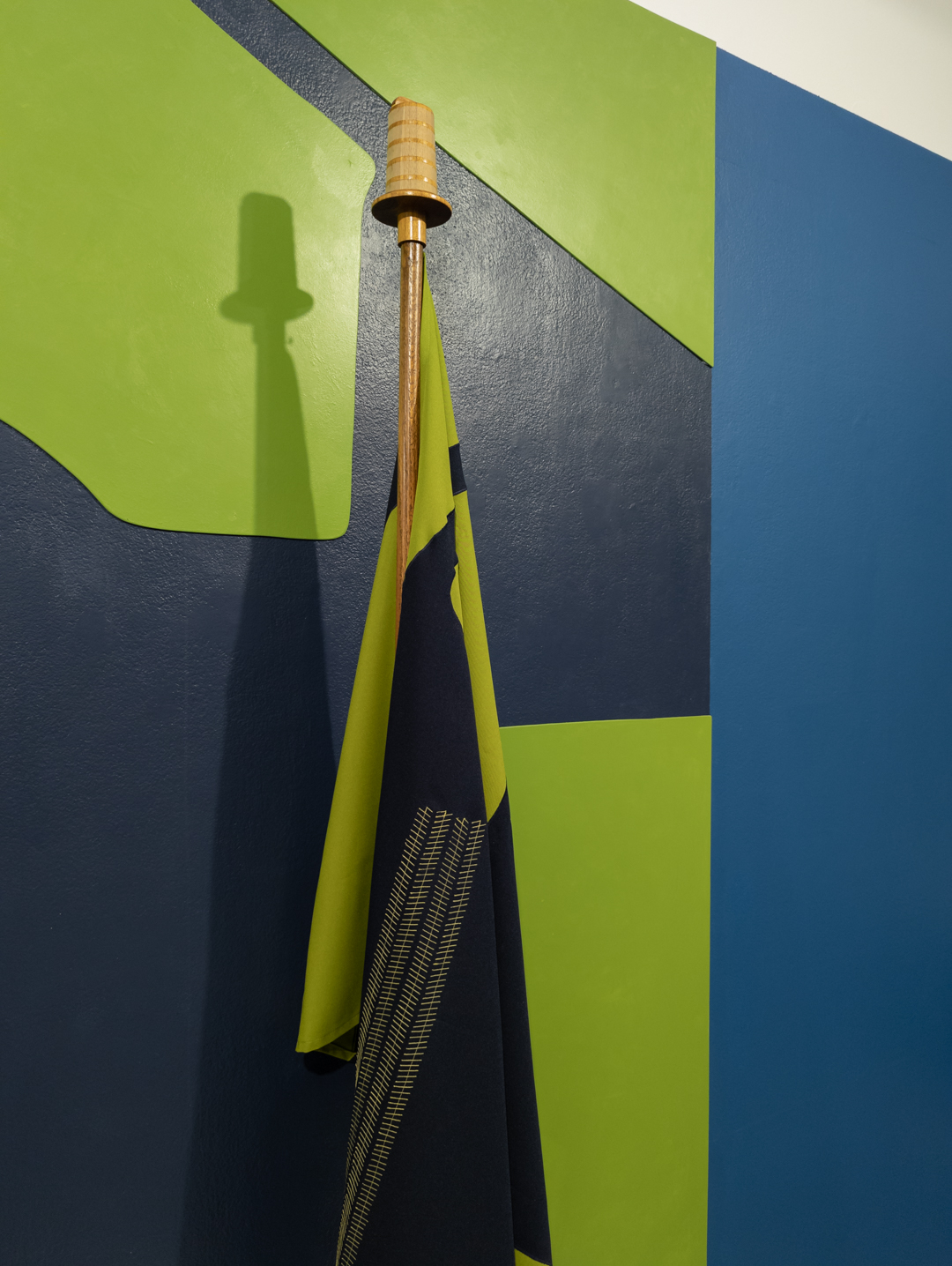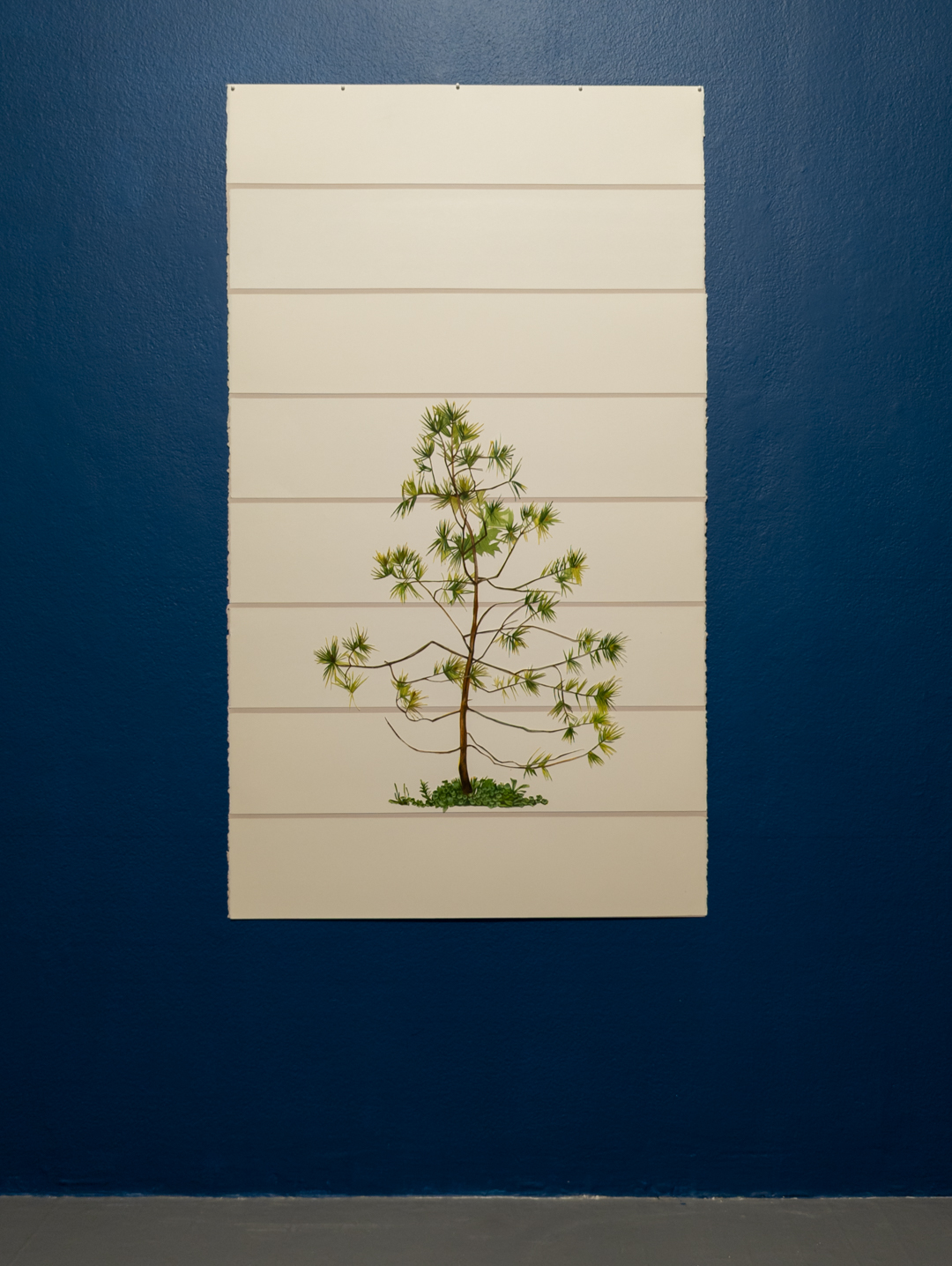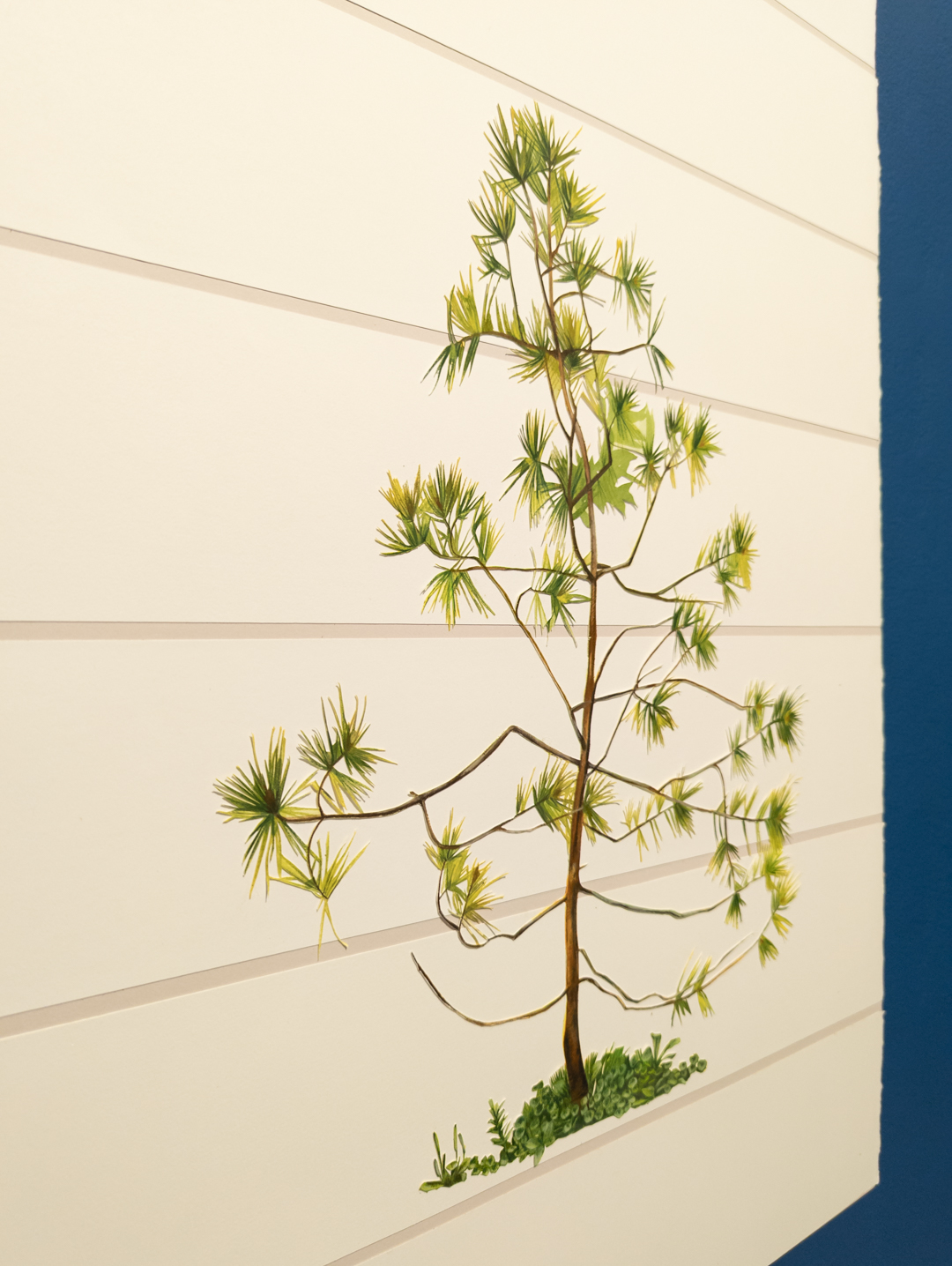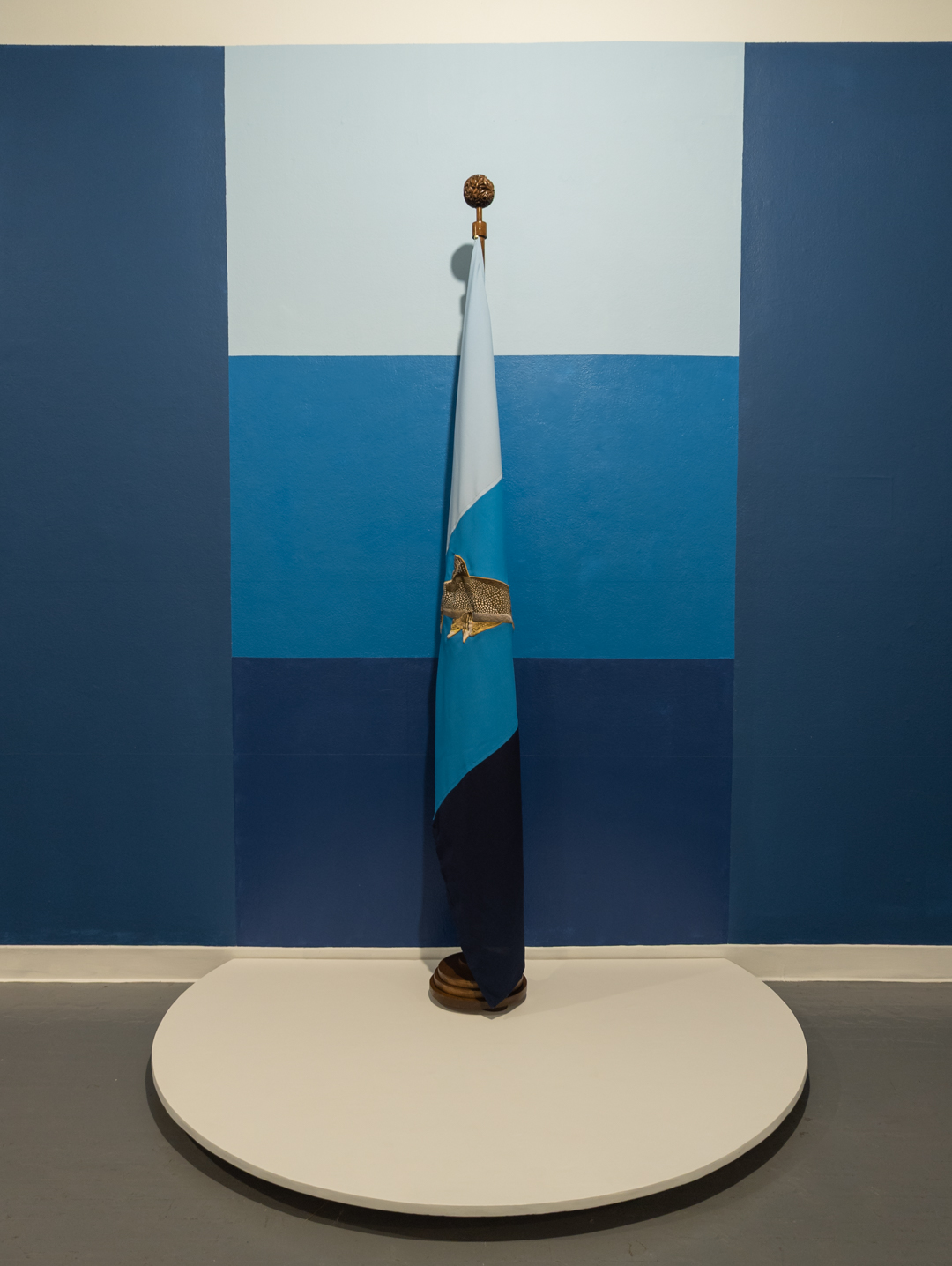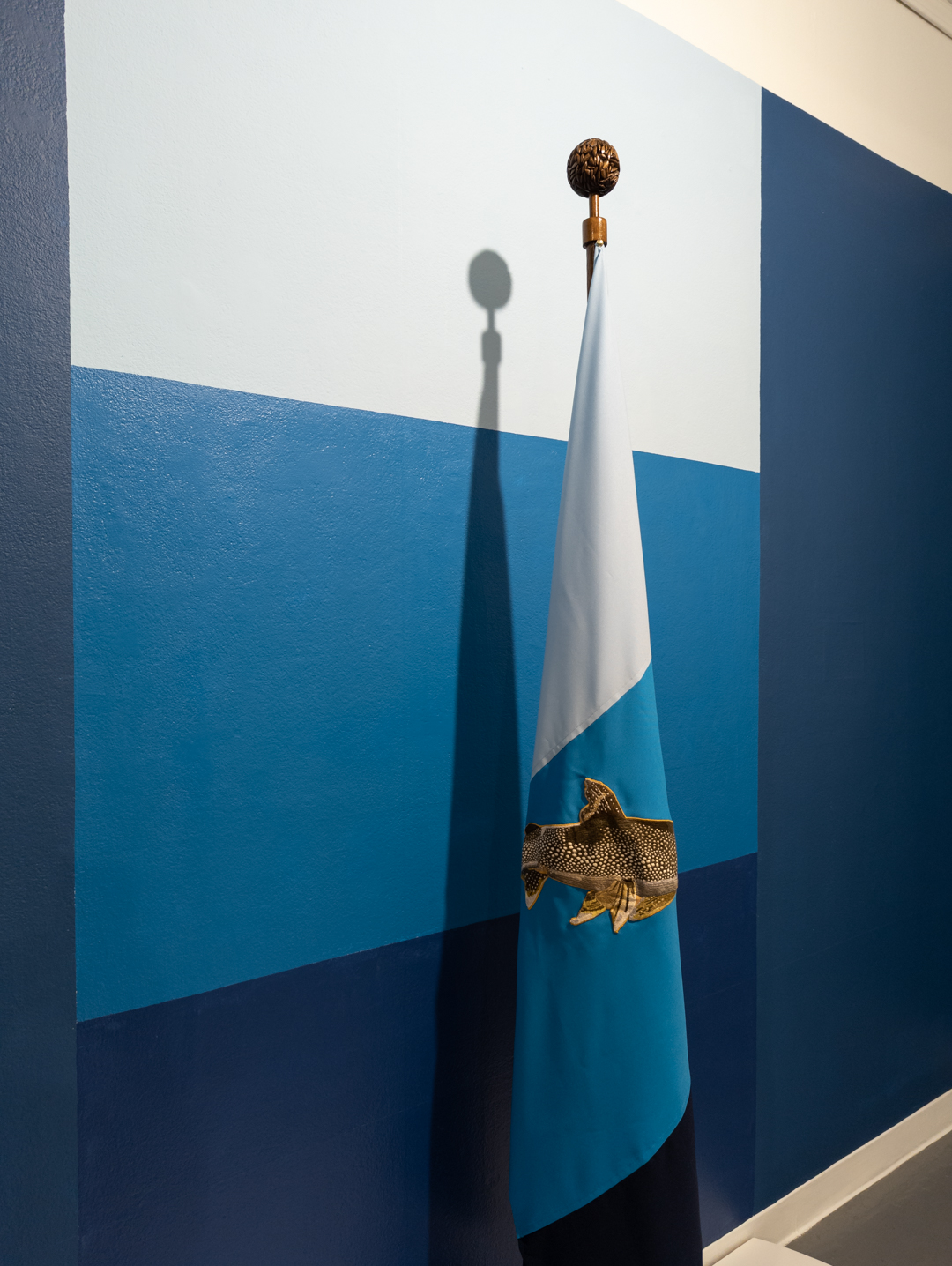Back to EXHIBITIONS
LAND OF PLENTY: An Appeal to Heaven
Installation by EMILY BELKNAP
The subtitle of this series refers to a flag used by the continental army in 1775 depicting a pine tree. White pine was used for the masts of colonial warships. In this way, the first American flag exposed the nation’s founding motive: mass extraction of abundant resources.
The flags in this series are sewn, hand-embroidered, and displayed on poles topped with hand carved wooden finials. Each flag is designed for a distinct “natural remnant,” a landscape that has been diminished but still exists as an example of what was once vast.
These landscapes are increasingly detached from our everyday lives. City trees die without being replaced, new housing developments are erected without due consideration to their effect on groundwater, soil best suited for farming is buried under fulfillment center parking lots, and the very color of Lake Michigan changes with the filtration of mussels. All of this goes on as the background to a political battle of who belongs in America. As we further abstract ourselves from the environment, I wonder: what are we protecting with our exclusionary rules of land ownership and citizenship?
The actual environmental threat is that certain landscapes become emblems for nationalist pride. Their increasing rarity strengthens their use as symbols for pride of place. Like the white pine tree, they become a noble cover for mass extraction. Meanwhile, other less scenic landscapes dwindle down to remnants, undervalued for their life-giving abundance.
There is a paradox embedded in each flag, as they at once confront pride in scarcity while affirming actual abundance. I celebrate the remnants as full of potential for new life. I honor abundant nature, while I critique the borders that restrict its access and sequester its growth. I create flags to criticize flags and represent abundance through threatened remnants.
Emily Belknap is a sculptor with experience in a broad range of craft techniques. She carves wood, sews fabric, models clay, welds metal, and all these processes contribute to her love for the material of the natural world. She holds a BFA from the Milwaukee Institute of Art and Design (2007) and an MFA from the University of Wisconsin Madison (2013). She was the recipient of the Chazen Prize at UW–Madison and received the Mary Nohl Fellowship in the emerging category in 2015. She currently teaches at the University of Wisconsin, Milwaukee.
We acknowledge that in Milwaukee we live and work on traditional Potawatomi, Ho-Chunk, and Menominee homelands along the southwest shores of Michigami, part of North America’s largest system of freshwater lakes, where the Milwaukee, Menominee, and Kinnickinnic rivers meet and the people of Wisconsin’s sovereign Anishinaabe, Ho-Chunk, Menominee, Oneida, and Mohican nations remain present.
We further acknowledge the grave evil colonialism introduced to these lands through genocide as well as slavery, and also via racist and xenophobic beliefs, laws, and practices that continue to inflict harm upon Black, brown, and Indigenous lives. We honor those who have lived—and do live, now—at these intersections of identity and experience, and are committed to the active dismantling of white supremacy.
720 E. Locust Street
Milwaukee, WI 53212
Phone: 414 263 5001
Hours: Tues–Sun | 12-7 pm
Closed Mon
Building Accessibility: Despite the age of our physical location, and attendant limitations to access, Woodland Pattern is committed to making its programs and facilities available for as many as possible. Please call for more information.
Events Accessibility: Woodland Pattern is able to offer captioning services for its online events and with advanced notice can provide ASL interpretation for live events. Please contact us with accommodation requests and questions.
© Woodland Pattern 2025
